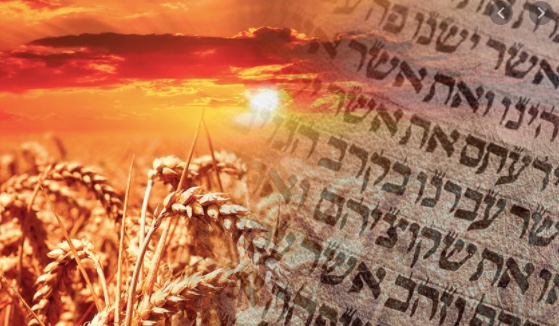Erev Shavuos
⁃ Unless medically necessary, blood tests and procedures should not be done on Erev Shavuos.
⁃ Maariv should not be Davened until after nightfall.
⁃ If necessary it’s allowed but kiddush should not be made until after nightfall.
⁃Many have the minhag that women don’t light candles until after nightfall.
Staying awake all night
⁃ This is a minhag not Halacha.
⁃ One who will not be able to Daven properly or do other mitzvos properly should not stay awake all night.
⁃ Staying awake until dawn and then going to sleep is allowed, as long as no Zmanim are missed and as long as a shomer is appointed to remind you to Daven.
⁃ One who’s awake all night should wash the hands at dawn.
⁃ No bracha should be made on washing the hands unless you go to the bathroom.
⁃ If it’s going to cause bitul Torah then you can wait until before davening to wash the hands.
⁃ Birchas Hatorah shouldn’t be made. However if you slept at least a half hour during the day then birchas hatorah can be made in the morning.
⁃ All other birchos hahsachar can be said except for נשמה אלוקי and שינה המעביר מעיני.
⁃ One who goes to sleep for a few hours after staying up all night should not take off the tzitzis and should not make birchas hatorah again after waking up.
⁃ No bracha should be made on tziztis. One should hear the bracha from someone who puts on a talis gadol.
⁃ Bracha on talis shouldn’t be made before the proper time.
Dairy
⁃ There are various customs of eating dairy on Shavuos.
⁃ If one is going to make a dairy meal then it’s preferable to be a night meal and not a day meal.
⁃ If one is eating dairy followed by meat in the same meal:
⁃ 1. New challah/bread must be brought to the table
⁃ 2. Hands must be washed
⁃ 3. Some parve food must be eaten
⁃ Many have the custom to wait an hour between eating meat and dairy. Some wait half an hour.
⁃ If one just ate dairy before the meal but didn’t wash for bread, a bracha achrona must be said before proceeding to wash for the meal.
⁃ Cheese that’s aged for more than 6 months requires a 6 hour wait before eating meat.
⁃ Real parmesan cheese is aged 6 months.
⁃ If the cheese was melted then no waiting is required.
⁃ There are those that are lenient with our aged cheeses. If necessary, this opinion can be relied upon.
Oven use for meat and dairy
⁃ The following Halachos apply for baking dairy in a clean meat oven or meat in a clean dairy oven (even if used in the last 24 hours):
⁃ If it’s covered (even one cover) it’s allowed.
⁃ If it’s uncovered and it’s solid food (e.g. challah or cake) it’s allowed.
⁃ If it’s liquid, turn the oven on 550 for an hour and it will be kashered. (This can not be done on Yom Tov).
⁃ Parve, even liquid, can be baked, even uncovered, in a meat or dairy oven and it will remain parve.
⁃ In all of the above situations it’s better to put foil down on the grates before baking in case something spills.
Cleaning help
⁃ She can do work in the house on Shabbos/Yom tov but she can only do melacha that makes her jobs easier for herself.
⁃ For example: she can wash dishes with hot water because it saves her time over using cold water and also no one notices that melacha is being done.
⁃ She can’t mop the floor, vacuum or do laundry etc.
⁃ Mopping would be allowed if necessary.
⁃ She can’t be told where the money that she’s being paid is. Either tell her where it will be before Shabbos/Yom tov or pay her afterwards.
Fires on Yom Tov
⁃ Fire is allowed to be lit on Yom Tov, for Yom Tov need, if it comes from an existing flame.
⁃ This is why many leave a 24/48 hour candle lit the entire Yom Tov.
⁃ Fire is allowed to be lit in order to be able to see.
⁃ Fire is not allowed to be extinguished on Yom tov.
⁃ Fire is not allowed to be extinguished even if you need it to be dark in the room.
⁃ A gas fed fire (most of our fires) is considered like any other fire and also can’t be extinguished on Yom tov (some say that Rav Moshe Feinstein Z”l allowed turning off gas fires).
⁃ According to Sfardim, a fire can never be lowered even if there’s food on the fire that will burn the food. The only option is to light a new flame that’s lower than the existing flame.
⁃ According to Ashkenazim, if there’s no other way for the food to stay hot/warm without burning then the flame can be lowered.
⁃ Nowadays, flames on stovetops first go to high and then have to be lowered. Therefore there’s no point in lighting a new flame and the existing flame can be lowered.
⁃ Lowering a flame to save gas or because it’s too hot is not allowed.
⁃ If it’s really hot etc. boil up water that will be necessary for Yom Tov and fill it up to the top so that it will bubble over and it will put out the flame. Then the gas can be turned off with a shinui.
⁃ Electricity can never be highered or lowered.
⁃ Most poskim do not allow “Sabbath mode” ovens to be adjusted.
⁃ Gas ovens with knobs can be adjusted higher, with a shinui, when the flame is on and can be lowered or turned off when the flame is off (all gas ovens cycle on and off).










